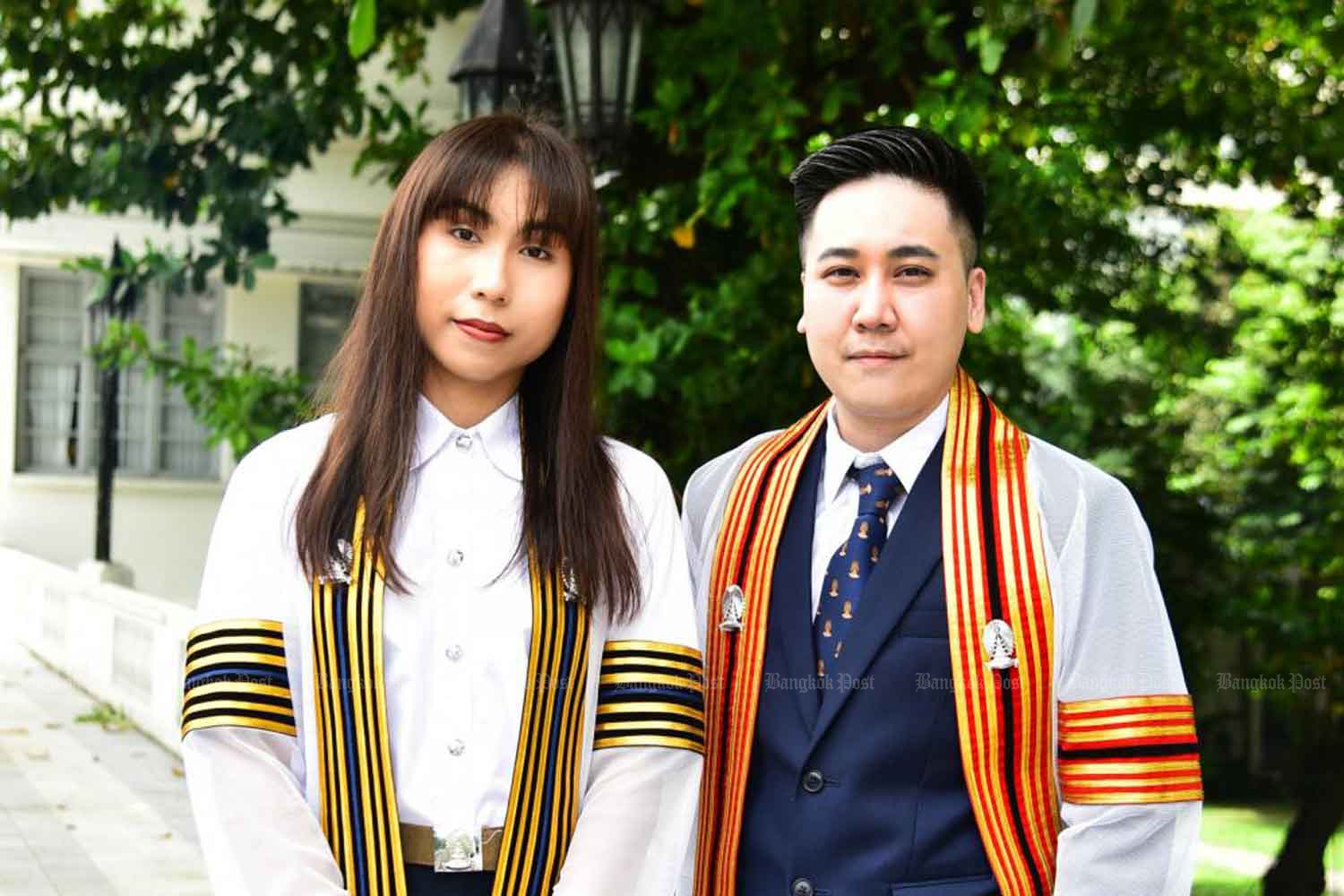
Graduation ceremonies were once dreaded by transgender students because they were forced to wear uniforms that aligned with their biological sexes.
Many, therefore, chose to skip a ceremony that stirs pride and joy among families in Thailand, where education is seen as a social mobility tool.
But that dread will soon pass when Chulalongkorn University -- the country's oldest university and one of the most prestigious -- which is often perceived as holding a conservative stance on the issue, allows its students to wear graduation uniforms that align with their assumed gender.
In fact, the university has allowed such a choice since 2017, although students who wished to do so had to submit a request to the dean of their faculty.
The university's stance on gender identity only became clear last year, when the institution issued an official regulation allowing students to wear uniforms that aligned with their gender identity.
This year, 11 students have already been given permission to wear uniforms that align with their genders.
The students need to submit a petition detailing their personal experience and psychological evaluation.
Charisa Saisrinil, a transgender student who realised she was a woman when she was 13, has dressed in female uniform since the day she entered the Faculty of Communication Arts four years ago. She never encountered a problem because she "passes" for a woman, but before the official regulation was issued she said she felt at risk every time she took a test.
"I feared that if the official who screened my ID card saw that I was a Mr I would not be admitted to the test room," she said.
She said she felt relatively safe during her time at the university but now that the right to wear uniforms of the student's choosing is finally recognised, she said she appreciated the move, even though she felt it should be a student's human right anyway.
Ms Charisa also feels that asking students to submit a psychological evaluation and detail their personal experience when submitting their request is unnecessary. "Why do I have to explain my existence?" she said.
Trynh Phoraksa, a PhD graduate of the Faculty of Political Science, said he had never had a problem being himself at university. "I have always dressed as a man but my experience is maybe different than those of bachelor students since I don't have to wear a uniform," he said.
He said his classmates treated him with dignity, except on rare occasions when some men made toilet jokes due to their long-held gender prejudices.
Mr Trynh feels that Thai society is now becoming more accepting of people with different genders but there is still room for more progress.
Many universities, including Thammasat, have since started allowing students to wear graduation uniforms of their choice.
Some activists argue, however, that uniforms should be abolished altogether and consider them to be a human rights violation.